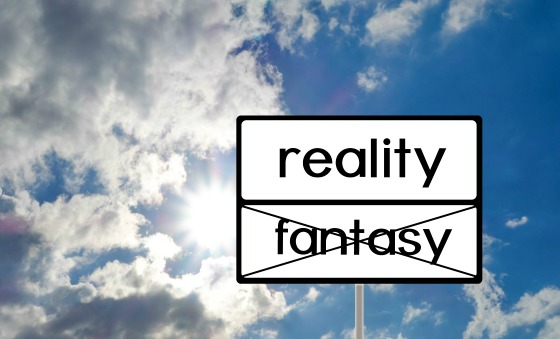This report was originally published by Adam Taggart at PeakProsperity.com

Economists are supposed to monitor and analyze the economy, warn us if risks are getting out of hand, and advise us on how to make things runs more effectively — right?
Well, even though that’s what most people expect from economists, it’s not at all how they see their role, warns CFA and and behavioral economist Daniel Nevins.
Economists, he cautions, are modelers. They pursue academic lines of thought in order to make their models more perfect. They live in a universe of equations and presumptions about equilibrium states and other chimerical mathematical perfections that don’t exist in real life.
In short, they are the wrong people to advise us, Nevins claims, as they have no clue how the imperfect world we live in actually works.
In his book Economics For Independent Thinkers, he argues that we need a new, more accurate and useful way of studying the economy:
However far you go back, you can find economists who had a more realistic approach to how humans actually behave, than the way that mainstreamers assume they behave in the models that the Fed uses to pick winners and losers.
You mentioned credit cycles, business environment, and behavioral economics. What I’ve done is to say, “Okay. We know that the modeling approach, the systems of equations approach doesn’t work. But instead of starting completely from scratch, what can we find in the economics literature that is maybe more realistic?”
And the interesting thing is that if you look at the work that was done, the state of the profession before the 1930s, before Keynesianism took hold, you can find a lot of work that was quite sensible.
I think where that points is towards this notion that when we think about economic volatility, there are really three things that we need to bring together:
One is the behavioral side. And we have to be realistic about the way that people really process information, the way that they truly make decisions.
The second has to do with the way businesses operate and all the challenges that businesses face to gain and retain profitability. That’s something that economists were intently focused on before Keynesianism and then it became kind of sidelined afterwards because all of these models assumed that businesses didn’t have any challenges.
If you pick apart the standard models that the Fed uses that are taught in PhD programs, they assume that business are always profitable, they always sell all of their output instantaneously, and they know exactly what their customers want, and businesses don’t struggle. So, that’s another thing we need to correct that you can find a lot of useful research if you know where to look (before Keynesianism and at the nontraditional schools that have continued in the older approaches).
And then the third thing is the credit side where mainstream economics is just so off-target, especially in their models that exclude any role for banks. Effectively, mainstream economists have made assumptions about the way money works and the way banks work that just flat do not match how they actually work in real life. That’s something that’s hugely critical to understanding economic volatility and understanding financial crises. But even regular business cycles have a lot to do with the ebbs and flows of bank lending. And banks just aren’t included in standard macroeconomic models(…)
Until you understand that the economic profession is really not doing anything like what I would say they should be doing—studying these things that go wrong, the recessions and depressions and crises—you might not realize that we shouldn’t really be relying on mainstream economists to tell us how policies should be crafted, to tell us what risks might be out there. We need a different approach.
Click the play button below to listen to Chris’ interview with Daniel Nevins (46m:19s).
For the transcript of this recording, please click here.





0 Comments